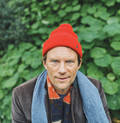1988 Appeal from European Film Directors
Dear friends,
we are becoming more and more aware of how the written word is being forced from our lives by moving images, how Gutenberg’s galaxy has evolved into the galaxy of Lumière. What originally began as an innovative attraction at town fairs became an art form of unprecedented power - one which soon gave birth to such inspired sons as Chaplin, Eisenstein and Buñuel, and today, with the aid of electronics, has developed into the most important vehicle of global culture and communication.
The twist of a plot or an actor’s charisma have such a strong effect on our collective imagination that everywhere around the world streets are swept clean of people when the next, continuing episode of a popular television series is aired. In other words, all of us concerned with the making of movies - directors, writers and actors alike - have an unparalleled influence on the needs and tastes, and therefore on the values of modern man. A mere toy - albeit one which became a highly potent mode of communication - has endowed us with a unique power and it is high time to accept the responsibility that goes along with that power.
Films that conquer cinemas around the world - and especially those broadcasted via satellite - tell millions upon millions of viewers our story, what we wish to say. Indeed, we have the power to influence continents. The danger, however, is that this could lead to cultural homogeneity, a downfall in artistic taste and a pollution of intellectual and spiritual values - all of which would gradually suppress national identity, native tongues, our inborn desire for the natural beauty of “otherness” and our respect for the diversity of the universe.
And so it has come to be that this innovative and often admirable “world power” of moving images is slowly threatening the existence of our European film culture. The cinema born in Europe and for many years proof of a continent rich in tradition and manifold in its ideals, a cinema which offered the world a knowledge of what it meant to be a European and gave birth to such works as DER LETZTE MANN, JEANNE D’ARC, HENRY V, POTEMKIN, DR. CALIGARI, LA GRANDE ILLUSION, QUAI DES BRUNES, LADRI DI BICILETTE, A BOUT DE SOUFFLE, VIRIDIANA and LA STRADA - this European cinema is slowly being driven from the screens of our movie theatres and television.
But does this mean that there is nothing left to do save to mourn our glorious past and bid goodbye to the European film? Or do we still have more to say, more to tell of our past, more to offer of our beliefs and convictions - so much more, in fact, that we make a joint effort to give the world what only we alone can give: the European experience?
Today, at the end of the twentieth century, a human message can be found embedded in our European soil. It documents a continent plagued by war and the murder of brother against brother, divided by political boundaries but held together by a common culture, weighed down by under the burden of families torn apart, tormented by unemployment, poverty, injustice and the lack of human rights, but nonetheless a Europe that deeply believes in a common, hopeful future marked by both joy and anxiety. Indeed, do we still have something to say - something, which if properly expressed, could possibly enrich human understanding on a universal level?
If the answer is “yes”, and we want that to be heard, then we must learn to express ourselves according to the changing conditions. Furthermore, we must endeavour to preserve Europe’s admirable wealth of diversity, for only then can the French film be French, the Italian cinema retain its Italian flavour, the Czech and Polish schools of filmmaking remain what they are and the German, Hungarian, Swedish, Russian and Greek movies continue to add their own colour to the large spectrum of cinematic art. The truer we are to our own selves, in other words, to our otherness, all the more stronger we are as one. Instead of limiting each other we ought to be striving toward a common identity based on variety, a mutual bond that greets diversity and otherness with open arms. And thus we can protect ourselves from the terror of standardised taste in art.
These thoughts have led us to create the “European Film Award” and perhaps later a European Film Academy. We have no other goal both to protect European culture by promoting the true value of her cinematography so that it may receive its due attention and find audiences throughout the world.
It is not our intention to compete with film festivals or to rival any present theories and schools of cinematic art. Our prize, to be awarded annually to film professionals for outstanding achievement and to films that represent European culture with great intrinsic integrity, was not conceived to oppose anything, but rather to affirm something. And that is nothing less than our love and our concern for what we call home: Europe.
Theo Angelopoulos
Richard Attenborough
Ingmar Bergman
Bernardo Bertolucci
Claude Chabrol
Federico Fellini
Claude Goretta
Dušan Makavejev
Jiři Menzel
Manoel de Oliveira
Eric Rohmer
István Szabó
Wim Wenders








